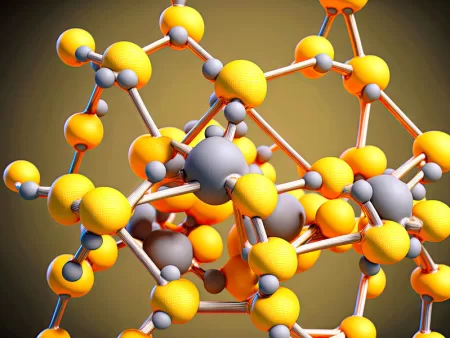
Desire a life filled with more energy, sharper mental clarity, and overall well-being? It’s time to delve deeper into how iodine plays a critical role in everything from your mental health to your metabolic rate.
Say goodbye to fatigue, brain fog, and unexplained weight gain. Welcome to a world where your body and mind work in flawless unison, powered by the right balance of iodine.
Iodine
The significance of iodine extends deep into the realms of health, serving as the linchpin for the thyroid, an organ nestled in our neck. This gland’s role in releasing T4 and T3 hormones is akin to orchestrating the body’s energy symphony, ensuring harmony and balance in how we utilize nourishment for vitality.
The Thyroid’s Ally
Imagine the thyroid as an engine that thrives on iodine, akin to a vehicle’s need for fuel. A shortfall in this essential nutrient is comparable to cooking without a crucial ingredient, leaving the final dish lacking. When iodine is abundant, it propels the thyroid into efficient hormone production, setting an ideal tempo for our metabolic processes.
Harmonizing Metabolism with Iodine
Iodine’s role is pivotal not just in hormone synthesis but in sculpting our metabolic landscape. Ensuring a sufficient supply of iodine keeps the metabolic process fluid and responsive, influencing our energy levels, temperature control, and body mass management. A deficiency can slow metabolic functions, similar to a computer lagging under heavy load, leading to fatigue, coldness, and weight gain without increased calorie intake.
Nourishing with Iodine-Rich Foods
Fortifying our diet with iodine is straightforward, thanks to its presence in seafood, dairy, and iodized salt—a testament to nature’s provision for our nutritional needs. This array of sources facilitates adequate iodine intake, underpinning thyroid health and, by extension, metabolic consistency. It underscores iodine’s crucial role beyond thyroid support, as a cornerstone of our body’s energy equilibrium and nutritional wellness.
Exploring Iodine Deficiency and Body Weight
Lacking iodine, an essential element for our thyroid gland, can trigger hypothyroidism—essentially putting the brakes on our body’s internal speedometer. The thyroid, reliant on iodine, crafts hormones critical for our metabolic pace. Insufficient iodine disrupts this hormone production, leading to a deceleration of bodily functions.
- The Connection Between Low Iodine and Fatigue: Among the hallmark signs of hypothyroidism is an overwhelming sense of fatigue, a tiredness that sleep doesn’t seem to cure. This lethargy stems from our metabolism dialing down, akin to a machine shifting into a lower gear, resulting in diminished energy levels throughout the day.
- Cold Sensitivity and Metabolic Slowdown: Feeling unusually cold in normal temperatures is another symptom pointing to a sluggish thyroid. This cold sensitivity is due to the reduced metabolic rate, which also impacts how our body generates and uses heat, making us more prone to feeling chilly even when others feel warm.
- Unwanted Weight: A Consequence of Reduced Metabolism: –The weight gain associated with hypothyroidism is particularly perplexing because it can happen without any change in diet. Since the body’s metabolic ‘engine’ is idling, not efficiently converting food into energy, excess calories are stored as fat. This slow burn can lead to a gradual increase in weight, often unnoticed until it becomes a significant concern.
Dietary Strategies to Combat Iodine Deficiency
Ensuring your diet is rich in iodine plays a crucial role in maintaining thyroid health and metabolic balance. Seafood, dairy, and iodized salt are key sources of iodine, acting as premium fuel for our thyroid’s hormone production engine. Incorporating these iodine-rich foods into your meals can help revitalize your metabolism.
Seeking Solutions for Hypothyroidism-Related Weight Gain
If weight gain or other symptoms of a sluggish metabolism have you concerned, consulting with a healthcare professional can provide clarity and direction. They can assess your thyroid function and iodine levels, offering guidance on managing your metabolic health. Addressing iodine deficiency could be a pivotal step towards restoring your body’s energy balance and achieving a healthier weight.
In the journey towards optimal health, understanding and adjusting your iodine intake based on your body’s unique needs can make all the difference. It’s about tuning into your body’s signals and finding the right nutritional harmony for holistic wellness.
The Vital Link Between Iodine and Mental Well-being
Iodine doesn’t just help our body use energy; it’s also super important for our brains. Not getting enough iodine can make it hard for people to think clearly and can affect how happy they feel. This is especially true for kids, who need the right amount of iodine to help their brains grow the way they should. When kids don’t get enough iodine, it can lead to problems with learning and make it harder for them to pay attention in school.
But it’s not just kids who need to think about iodine. Adults need it too, to keep their minds sharp and to help manage stress. Scientists have found that when people don’t get enough iodine, they can feel more tired, sad, or even depressed. They might also find it harder to remember things or to focus on tasks.
How Iodine Works Its Magic
So, how does iodine do all this? Well, it helps make sure that the hormones made by our thyroid gland are balanced. These hormones are super important for our brain’s health. They help our neurons, which are the cells in our brain that send messages, work better. This means that when we have enough iodine, our brain can send messages more clearly and quickly.
Iodine’s Role in Emotional Stability
Having the right balance of thyroid hormones, thanks to iodine, also helps us feel emotionally stable. This means we’re better at handling stress and less likely to feel too sad or too anxious. It’s like iodine helps keep our emotional engine running smoothly, so we don’t break down when things get tough.
Recommended Iodine Intake
Harmonizing iodine intake is critical for the thyroid’s meticulous task of metabolic regulation. For adults, the target is set at 150 micrograms (µg) daily, while the stakes are raised for pregnant and breastfeeding women to 220-290 µg to cater to the intricate developmental needs of the young. This ensures a foundation for robust growth and cognitive advancement in early life stages.
Embarking on a Dietary Voyage for Iodine
The quest for sufficient iodine can be navigated through the culinary landscape, rich with sources from the sea like fish and seaweed, alongside dairy delights and grains. The humble ally in this journey, iodized salt, stands as a beacon, ensuring our daily meals contribute to this vital nutrient’s quota, enriching our diet with both flavor and nutritional value.
Iodine Supplementation: Navigating with Precision
Exploring the realm of iodine supplementation warrants a consultative passage with medical professionals, especially for those with thyroid nuances. These supplemental aids are designed to address dietary deficiencies but must be employed with strategic care to maintain thyroid harmony. Expert guidance is the compass by which to steer the supplementation voyage, ensuring safe and effective incorporation into one’s health regimen.
Custom Tailoring Your Iodine Intake Map
Deciphering the maze of personal iodine requirements, though seemingly daunting, is anchored in dietary diversity and expert consultation. Engaging with nutritionists or healthcare providers illuminates the path, tailoring intake strategies to align with individual health landscapes, ensuring your iodine journey is both personalized and optimized.
Attentiveness to iodine consumption is a key chapter in the narrative of holistic health, directly influencing thyroid efficacy and metabolic equilibrium. Through enlightened dietary practices and judicious supplementation, achieving ideal iodine balance is an attainable goal. Dialogue with healthcare practitioners enriches this quest, guiding towards a balanced and informed approach to health and nutritional well-being.
Iodine Supplementation Guidelines
Optimizing your health with additional nutrients, particularly for thyroid support, requires informed choices. Not everyone may need an extra boost, but for those who do, selecting the appropriate type and utilizing it correctly is paramount.
Selecting the Appropriate Supplement
Various options exist for those considering an extra nutritional boost. Potassium iodide stands out for its effective absorption by the body, while kelp-based supplements offer a natural alternative sourced from seaweed. Consulting with healthcare experts is advisable to navigate these options and pinpoint the most suitable choice based on individual health profiles and dietary habits.
Timing for Optimal Nutrient Absorption
The efficacy of nutrient absorption can be influenced by the timing of intake. Generally, consuming your supplement alongside a meal may enhance assimilation and mitigate potential digestive discomfort. Adherence to professional advice or package directions is recommended to optimize the benefits based on specific supplement characteristics and personal health considerations.
Blending Supplements with Natural Food Sources
While considering supplementation, it’s crucial to continue valuing natural food sources rich in this essential mineral. Incorporating seafood, dairy products, and fortified salt into your meals can provide a balanced intake. Adjusting supplement dosage in accordance with your dietary consumption can help maintain equilibrium, avoiding the pitfalls of excess. Regular health evaluations can assist in fine-tuning this balance, particularly for those with specific conditions or dietary requirements.
Keeping Tabs on Nutrient Levels
Monitoring your intake is vital, especially when introducing supplements. Subtle indicators, such as fluctuations in weight, energy, or general well-being, may signal imbalances. Professional health assessments, including tests for nutrient levels and thyroid functionality, can ensure your intake aligns with your body’s needs. This vigilance is crucial for individuals with pre-existing health conditions or those undergoing life stages with increased nutritional demands.
Incorporating additional nutrients into your regimen for thyroid and overall wellness necessitates a balanced approach. Careful selection, timing, and integration with dietary sources are essential steps in managing your intake effectively. Collaboration with healthcare providers will customize these recommendations to your unique health journey, maximizing benefits while safeguarding against potential risks.
Conclusion
Securing thyroid health and energy management pivots on adequate iodine, a silent guardian of metabolic rhythms. Diverse dietary choices, enriched with oceanic produce, dairy delights, and seasoned with iodine-infused salts, fortify well-being. A shortfall in this vital nutrient can derail hormone harmony, manifesting in body weight challenges and diminished cognitive sharpness. Embarking on a tailored iodine enhancement plan, under professional guidance, sidesteps the pitfalls of imbalance, ensuring a flourishing health landscape. The equilibrium of iodine intake is a linchpin for melding mental resilience with physical dynamism.
FAQs
Indicators of deficiency may include persistent tiredness, unexpected shifts in weight, and feeling perpetually cold. Engaging with a health professional for targeted testing can provide conclusive insights.
Yes, by focusing on a variety of foods rich in this essential nutrient, such as oceanic fare, milk products, and using specially fortified salts, one can meet their dietary needs.
Consuming too much can upset the delicate balance of thyroid function, potentially leading to various health issues. Moderation is key to preventing these adverse effects.
Demand for this nutrient spikes during pregnancy and breastfeeding to support the growing baby. Healthcare guidance can help adjust intake to these heightened needs.
Incorporating a broad spectrum of nutrient-rich sources, such as seafood, dairy, and iodine-enriched salt, into meals can naturally boost levels. Seaweeds are an excellent source as well.







